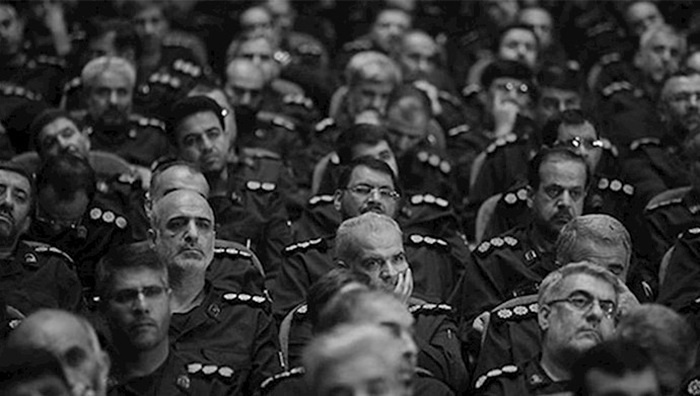
In the intricate political landscape of Iran, a concerning trend has emerged among the top echelons of the regime, particularly those closely aligned with Supreme Leader Ali Khamenei.
This trend involves the strategic use of misleading statements, a practice deceitfully termed as “interpretation jihad.” The term has become increasingly synonymous with the regime’s efforts to obscure the true nature of various political, economic, and social crises it faces.
At the forefront of this deceptive practice are key regime officials, including the heads of the judiciary, Majlis (parliament), and government, especially those appointed directly by Khamenei. Their proximity to the regime’s apex leadership seems to correlate with the extent of their duplicity in addressing the regime’s internal issues.
Over the past year, Khamenei and other regime leaders have consistently evaded acknowledging the fundamental problems plaguing their governance. A notable aspect of this strategy is the deliberate misrepresentation of the term “enemy” to refer to the Iranian populace, whereas “people” is used to denote the regime and its interests. This semantic manipulation reveals a stark reality: the regime views itself as besieged by its own citizens.
Watch a 7 min recap of:
Crisis and War in the #MiddleEast: The Roots and Solutions
Understanding the #Iranian regime’s Goals in the Crisis pic.twitter.com/oikos96Kxu— NCRI-FAC (@iran_policy) January 2, 2024
The regime’s persistent emphasis on “interpretation jihad” over the last 45 years, leveraging its control over media and publishing, raises critical questions about the motives behind this propagandistic fervor. Despite the heavy reliance on such rhetoric, the regime cannot mask the fact that its actions and policies are the primary contributors to the crises afflicting Iran.
Cultural work must be done, but judicial and security measures must also be taken, and in some cases, there is simply no other way.” This admission suggests that the regime recognizes that deceit alone cannot substitute for the harsher realities of suppression, torture, and executions – practices that have been fundamental to its rule.
Ejei’s comments also betray a deep-seated fear within the regime about the legitimacy of the upcoming sham parliamentary elections. He urged participation in the voting process, yet implicitly acknowledged that the people’s demands would remain unmet regardless of the election results.

A glaring example of this rhetoric was evident in a statement made by Gholamhossein Mohseni Ejei, the head of the judiciary, in Mashhad. Reported by the IRGC-run Tasnim News Agency on January 10, Ejei stated, “Today, the sword of justice must move forward alongside the issue of interpretation.
In summary, the Iranian regime appears to have come to terms with the ineffectiveness of its deceptive narrative. However, it continues to futilely attempt to postpone its inevitable decline, hoping to retain a semblance of legitimacy for a while longer. The tactic of “interpretation jihad,” far from being a solution, has become a symbol of the regime’s desperation and disconnect from the real issues facing Iran and its people.

MEK Iran (follow us on Twitter and Facebook), Maryam Rajavi’s on her site, Twitter & Facebook, NCRI (Twitter & Facebook), and People’s Mojahedin Organization of Iran – MEK IRAN – YouTu
